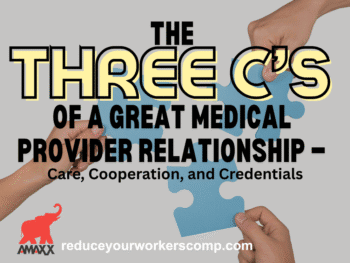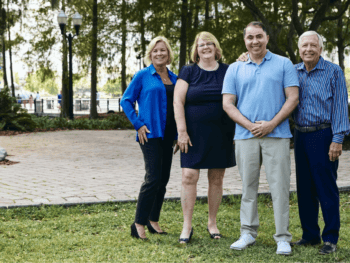A medical-legal conference (often referred to by adjusters and attorneys as a “med-legal”) is an informal meeting between counsel and physician to discuss the medical aspects of a claimant’s case. In Connecticut, the professional guidelines provide direction as to the cost and scope of a medical-legal conference. Such meetings can be ex parte between the treating physician and claimant’s counsel, or the respondent’s examiner and respondent’s counsel.
While neither counsel has the right to an ex parte meeting with the opposing party’s physician, it is not uncommon for both counsel to meet with a physician to obtain an informal medical opinion without the costs associated with a deposition.
A medical-legal conference is appropriate where there is a concern regarding the best medical course of action for the claimant, to prepare the physician for testifying, and to learn the opinions of the physician prior to the issuance of a report.
These discussions should be used as a learning tool for both counsel and physician. An informal meeting provides a collaborative setting for counsel to consult with a physician to ensure that the physician has the right medical history, as well as to share additional information, such as medical documentation, surveillance, or the claimant’s job description, which may impact the physician’s ultimate opinion.
Counsel should use these meetings to obtain a greater depth of understanding of the medical issues inherent in the case. Workers’ compensation cases often involve medical questions outside the expertise of a litigator. At a medical-legal conference, counsel can ask the physician to educate them as to the medical analysis utilized in evaluating the claimant’s injuries. This information is particularly helpful in preparation for taking the deposition of the opposing expert, as counsel can seek an in depth explanation of why the opinion of the opposing party’s physician is incorrect from a medical perspective. (workersxzcompxzkit)
Medical-legal conferences are also useful tools for determining the likely future course of treatment and/or treatment options. Counsel can use the opportunity to obtain a physician’s opinions as to anticipated periods of future disability and the likely degree of permanent impairment.
Authors: Colette S. Griffin, Esq. & Christopher M. Russo, Esq. of Howd & Ludorf, LLC http://www.hl-law.com/ 1-860-249-1361
Atty. Griffin, a graduate of Quinnipiac College School of Law (1987) is a partner with a focus on workers’ compensation, defending corporations and their insures in the Workers’ Compensation Commission for the State of Connecticut, arbitration and mediation venues.
Atty. Russo is an experienced Hartford county litigator focusing on workers’ compensation and insurance defense litigation. He is admitted to practice in Connecticut, U.S. District Court of CT, U.S. Tax Court and U.S. Court of Appeals for the Second Circuit. He earned his J.D. from UCONN School of Law in 2006.
WC Calculator: www.reduceyourworkerscomp.com/calculator.php
http://reduceyourworkerscomp.com//Return-to-Work-Programs-Unionized-Companies.php
©2009 Amaxx Risk Solutions, Inc. All rights reserved under International Copyright Law. If you would like permission to reprint this material, contact Info@WorkersCompKit.com


























